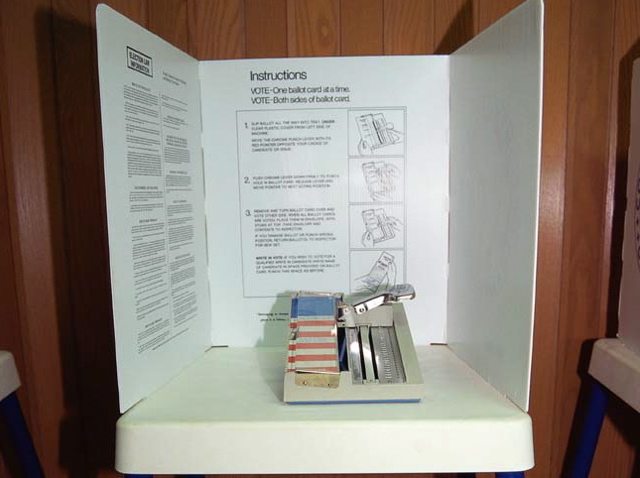Prop. 112 – Initiative Reform
Passing would amend the Arizona constitution to require initiative petitions (filed by citizens to put propositions on the ballot) to be filed six months in advance of an election, as opposed to the current four-month requirement.
Proponents (YES VOTE) say this will help add time (two more months) for election officials to verify information and place these items on the ballot.
Opponents (NO VOTE) argue that this would hinder citizen strategies on certain legislation. Citizens can ask the Legislature to pass new laws. If the Legislature chooses not to, these citizen groups currently have time to gather signatures and refer these items to the voters. The extra two months means that some citizen groups might have to go straight to the ballot, as opposed to letting the Legislature address the issue due to the more limited timeframe.
Tom’s Pick:
NO on Prop. 112
This proposition makes citizen initiatives go from being filed four months before an election to six months before an election. While two fewer months to collect signatures does not seem like much of a difference, it actually is in the legislative process. It would mean that the Legislature would probably still be in session when citizen initiatives are due to be filed for the ballot. If the Legislature doesn’t like something citizens have filed, the Legislature could then refer a competing measure to derail the citizen’s initiative. This has been done in the past. The clerk has plenty of time to verify signatures within four months. This does not help citizen-initiated efforts. It would give more control of ballot items to the Legislature.
Prop. 113 – Right to Secret Ballots for Employee Representation
Passage would amend Arizona’s constitution to guarantee the right to a secret ballot when any government jurisdiction allows or requires a vote for employee representation. Currently, if workers want to form a union, signatures are collected, and once 30 percent of the workers have signed on in support, an election with a secret ballot is held. If a majority votes yes, they can unionize.
Proponents (YES VOTE) say that this will guarantee that Arizona workers will be able to vote a secret ballot in any union election and that this would prevent intimidation tactics. They say a worker might sign to approve the election out of fear, but they could then vote no in secret.
Opponents (NO VOTE) argue that Arizona workers have the right to unionize free of an employer’s influence. This would require an election even if 100 percent of the employees requested union representation. It would also require an election, even if the employer agreed to recognize a union. They also claim that it could conflict with federal law and would open Arizona up to lawsuits.
Tom’s Pick:
NO on Prop. 113
This is a union-busting initiative pushed by a Nevada-based group and the Goldwater Institute and opposed by most of the unions. Federal legislation is pending that would make it moot. It would make all union elections mandatory (and secret) even if all the employees and the management support union organization.
Proposition 203 is on the ballot because enough signatures from citizens were collected to refer it.
Prop. 203 – Medical Marijuana
Passing would have the effect of authorizing marijuana to be used legally by people with debilitating conditions who get a prescription from a physician. It would also establish a regulatory system by the Arizona Department of Health Services to license not-for-profit distributors.
Proponents (YES VOTE) say that this is no more dangerous than many other prescription medications already being used. They also argue that marijuana used as medicine can improve the quality of life for many people living with specific and chronic pain.
Opponents (NO VOTE) argue that the Federal Drug Administration does not currently recognize marijuana as a treatment for any medical condition and that this will create numerous opportunities for abuse and fraud.
Tom’s Pick:
YES on Prop. 203
I do believe that eventually the tide of legalized medical marijuana will sweep over all of America. Although I would not use it, I do not have chronic pain. Maybe if I did, I would consider it. Friends I know who deal with chronic pain tell me that marijuana helps relieve pain without most of the same side effects that other narcotics create.
Proposition 301 and 302 were referred to the ballot by the Legislature.
Prop. 301 – Transferring Monies from the Land Conservation Fund
Passage would transfer the remaining balance of money from the Land Conservation Fund to the state general fund. The state Land Conservation Fund was created by voter approval in 1998 as a part of the Growing Smarter Initiative. It required the state to set aside funds to help acquire State Trust Land for conservation.
Proponents (YES VOTE) say that given Arizona’s current financial crisis, the Legislature needs the flexibility to use these funds for other important state functions.
Opponents (NO VOTE) argue that this money was set aside by a citizen vote to help match funds with local communities trying to conserve land. This is why the Legislature can’t just take these funds without voter approval. They argue that the Legislature should fix Arizona’s budget crisis without taking this money.
Tom’s Pick:
NO on Prop. 301
In 1998, voters overwhelmingly supported putting money aside to help preserve land with a conservation value that could be matched by local jurisdictions and conservation groups. This money cannot be touched by the Legislature, so it is asking voters to let it sweep the funds from this account into the general fund so legislators can spend it. Tools to help conserve our natural resources are few and far between. Let’s not surrender this one to the Legislature.
Prop. 302 – Transferring Monies from Early Childhood Development and Health Programs
Passage would transfer the remaining balance of money from the Early Childhood Development and Education Fund to the state general fund. It would also terminate the Arizona Early Childhood Development and Health Board and programs. This fund and these programs were created by voter approval on the 2006 ballot. It would require that future tobacco tax revenue would go directly into the state’s general fund.
Proponents (YES VOTE) say that given Arizona’s current financial crisis, the Legislature needs the flexibility to use these funds for other important state functions.
Opponents (NO VOTE) argue that this money was set aside by a citizen vote as part of the First Things First citizen’s initiative to help with early childhood education programs, which have proven to be effective. This is why the Legislature can’t just take these funds without voter approval. They argue that the lLgislature should fix Arizona’s budget crisis without taking this money.
Tom’s Pick:
Like Prop 301, this initiative is asking voters to give untouchable money to the Legislature. In 2006, Arizonans voted to raise a tax on tobacco for early childhood development programs. The Legislature wants these funds, as well as the future revenue stream that comes from this tax.
For a more thorough explanation of each proposition, check out the publicity pamphlet on the Secretary of State’s website.
There is a lot to think over before voting on these items. Nov. 2 is coming soon!





